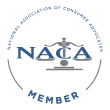SERVICES
Debt Collection Harassment
In 1977 Congress passed the Fair Debt Collection Practices Act (FDCPA) to help protect consumers from the abusive actions of third party debt collectors. The law provides remedies for victims of unfair debt collection practices, including actual damages as well as compensation for the cost of filing a claim and attorney’s fees. Being hounded by debt collectors can take a substantial emotional and financial toll on victims, so if you or a loved one have questions or concerns about the legality of a debt collection agency’s actions, it is important to contact an experienced civil litigation attorney who can help you file a claim.
Prohibited Communications
The FDCPA prohibits debt collectors from using certain tactics to collect unpaid debts, including communicating with the consumer without his or her consent or without gaining express permission from the appropriate court. Under these rules, debt collectors cannot contact a consumer in connection with debt collection:
- At any unusual time or place, specifically after 8:00 p.m. or before 9:00 a.m.;
- If the consumer is represented by an attorney; or
- At the consumer’s workplace if his or her employer prohibits receiving this type of communication.
Additionally, debt collectors are not permitted to communicated with anyone other than the consumer, his or her attorney, or a reporting agency about matters related to the collection of a debt.
Ceasing Communication
Once a consumer notifies a debt collector in writing that he or she will not pay a debt or that further communication on the matter should cease, the debt collector can only contact the consumer about the debt in order to:
- Advise the consumer that efforts at communication will be terminated;
- Notify the consumer that it has the option of invoking specific remedies; or
- Communicate to the consumer that it intends to invoke a certain remedy.
Protection from Harassment
The law also prohibits debt collectors from harassing, oppressing, or abusing a consumer in connection with collection of a debt in other ways, including by:
- Using or threatening to use violence to harm the consumer’s person, reputation, or property;
- Using obscene language;
- Publishing a list of consumers who owe debts to anyone except a consumer reporting agency;
- Advertising the debt as for sale in an effort to coerce payment;
- Calling a consumer via telephone repeatedly; and
- Calling the consumer without disclosing the debt collector’s identity.
Protected Consumers
The FDCPA protects more than just the individual who actually owes the debt, including the consumer’s:
- Spouse;
- Parent, if he or she is a minor;
- Guardian;
- Executor; or
- Administrator.
Under the FDCPA, victims of unfair third party debt collection practices can obtain compensation for actual damages as well as the cost of attorney’s fees. If you are a resident of New Jersey or Pennsylvania and you have been the victim of a debt collector’s abusive practices, please contact The Kim Law Firm, LLC by calling 855-996-6342 and a member of our dedicated legal team will help you schedule a consultation with an experienced attorney who can explain your legal options.
Get a NO COST EVALUATION of your case TODAY!
Client Endorsements
My husband and I were being sued by an incredibly unscrupulous company. My husband was dealing with a life threatening illness and had to have surgery to prolong his life. After botched representation from a lawyer who was an acquaintance and my ignorance of court proceedings which upset the judge (rightfully so) Rich came in, worked over the holidays and saved me from these predators. He won our case and a judgement in our favor. He saved my marriage, gave my husband time to heal, and unraveled a mess that could've destroyed our life. He exemplifies 'due diligence'. I will consider him a friend for for life. His exemplary work ethics and professionalism are above reproach. Makes me emotional. Thank you Richard Kim. The world needs more attorneys of your character!!!
In July of 2014 I retained the services of Richard Kim to help settle a financial dispute between a former business partner and myself. Mr. Kim quickly familiarized himself with all details of my case, conveyed a clear and concise plan of action, was always easy to reach and quick to respond, and most importantly maintained the highest standards of ethical conduct throughout the yearlong proceedings, culminating in a financial settlement in my favor. He would be my first call should I ever need to retain legal services in the future, and I would recommend him without hesitation to anyone needing to do the same.
I have used Richard Kim’s services for a guardianship case involving a disabled sibling, and an elder abuse suit involving my mother being mistreated in a local nursing home, and I've been extremely happy with his work. His professionalism, follow-through, and doggedness in pursuing every avenue of the law are truly impressive. In the future, I have every intention of using Mr. Kim’s services again, for both personal and business-related matters. When I learned of the many honors and accolades he has already accrued in his career, I wasn’t surprised at all. I'm sure there are more to come!







